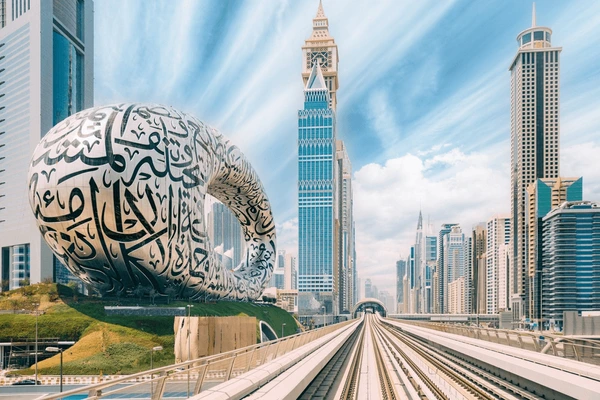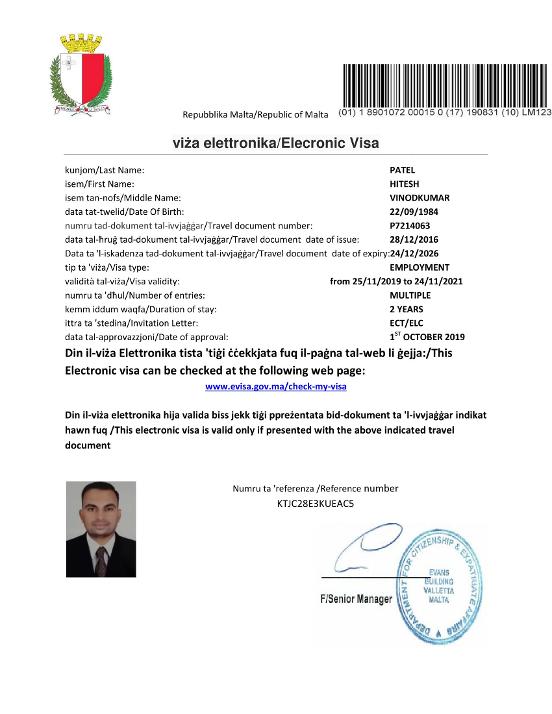Portugal Visa Eligibility Required
Applicants wanting to get a Portugal visa have to meet a number of requirements. First, you must possess a passport from an eligible country that is valid for a minimum of three months after the planned date of leaving Portugal. You must also substantiate the reason for your visit, be it tourism, business or a family visit, by providing hotel reservations, business visit invitations or proof of family relationships.
In addition, having a stable financial situation is critical. Most of the applicants provide a bank statement or sponsorship letter that is sufficient to prove the applicant's ability to sustain himself/herself during his/her stay in Portugal.
All applicants are required to have at least €30,000 of insurance covering medical emergencies and repatriation and include it as part of the application package. It is important to address these requirements, as their lack can cause delays or refusal of the visa. Contact person at VisitsVisa ensure that the documents are available and processed well in advance.
Widen Your World - Visa-Free Portugal Travel for Citizens
Portugal's status as a Schengen Area member allows visa-free visits for citizens of particular countries to visit Portugal for less than 90 days within any 180 day period. What this means is that citizens from visa-free nations can travel to Portugal's heritage cities like Lisbon and Porto and enjoy the vibrant culture of Portugal without having to obtain a visa.
The policy is advantageous for a number of countries which for the most part enables traveling across the Schengen Zone without a visa. However, travelers still need to satisfy other entry requirements, such as having adequate funds and medical insurance.
Why is the Portugal Visa Application Online Important for VisitsVisa?
Facilitating travel procedures and improving convenience are what VisitsVisa seeks to achieve by providing the option to apply for a Portugal visa online. Applying online allows users to save time when completing a visa application. Completing a visa application with VisitsVisa guarantees travelers that they do not need to go through the inconveniences associated with paper applications because everything is provided for them.
VisitsVisa makes it easy for applicants to manage their documents by guiding them through payment and setting up biometrics appointment scheduling. Time is saved with the online application system since applicants are less likely to overlook important steps which subsequently reduces the chances of errors and time delays.
Moreover, VisitsVisa aids travelers in clarifying eligibility requirements and visa fees. The online application system improves the efficiency of visa processing but more importantly helps avoid unnecessary confusion, thus allowing travelers to dedicate their time to planning the trip rather than stressing over the paperwork.




 Portugal
Portugal UAE
UAE EU
EU Romania
Romania Ukraine
Ukraine US
US Malta
Malta Singapore
Singapore Malaysia
Malaysia Mexico
Mexico Canada
Canada Hong Kong
Hong Kong Italy
Italy Australia
Australia Schengen
Schengen New Zealand
New Zealand South Korea
South Korea Israel
Israel Austria
Austria Belgium
Belgium The Czech Republic
The Czech Republic Denmark
Denmark Estonia
Estonia Finland
Finland United Kingdom
United Kingdom Germany
Germany Hungary
Hungary Iceland
Iceland France
France Latvia
Latvia Liechtenstein
Liechtenstein Lithuania
Lithuania Luxembourg
Luxembourg Japan
Japan Switzerland
Switzerland Netherlands
Netherlands Norway
Norway Slovakia
Slovakia Slovenia
Slovenia Spain
Spain Sweden
Sweden Greece
Greece Albania
Albania American Samoa
American Samoa Andorra
Andorra Antigua and Barbuda
Antigua and Barbuda Argentina
Argentina Bahamas
Bahamas Barbados
Barbados Bosnia and Herzegovina
Bosnia and Herzegovina Brazil
Brazil Brunei
Brunei Bulgaria
Bulgaria Chile
Chile Colombia
Colombia Costa Rica
Costa Rica Croatia
Croatia Dominica
Dominica El Salvador
El Salvador Georgia
Georgia Grenada
Grenada Guatemala
Guatemala Guinea
Guinea Honduras
Honduras Ireland
Ireland Kiribati
Kiribati Kosovo
Kosovo Macau
Macau Marshall Islands
Marshall Islands Martinique
Martinique Micronesia
Micronesia Monaco
Monaco Montenegro
Montenegro Nicaragua
Nicaragua North Macedonia
North Macedonia Palau
Palau Panama
Panama Peru
Peru Puerto Rico
Puerto Rico Saint Kitts and Nevis
Saint Kitts and Nevis Saint Lucia
Saint Lucia Saint Vincent and the Grenadines
Saint Vincent and the Grenadines Samoa
Samoa San Marino
San Marino Serbia
Serbia Seychelles
Seychelles Solomon Islands
Solomon Islands Timor-Leste (East Timor)
Timor-Leste (East Timor) Tonga
Tonga Trinidad and Tobago
Trinidad and Tobago Tuvalu
Tuvalu Uruguay
Uruguay Vatican City
Vatican City Venezuela
Venezuela Cyprus
Cyprus Egypt
Egypt Kuwait
Kuwait Oman
Oman Yemen
Yemen Saudi Arabia
Saudi Arabia Bahrain
Bahrain India
India GCC
GCC Turkey
Turkey Russia
Russia Qatar
Qatar Thailand
Thailand Philippines
Philippines Vietnam
Vietnam Armenia
Armenia Kazakhstan
Kazakhstan Uganda
Uganda Ghana
Ghana Kenya
Kenya Sudan
Sudan Morocco
Morocco Syria
Syria Lebanon
Lebanon Iran
Iran Iraq
Iraq Azerbaijan
Azerbaijan Afghanistan
Afghanistan Algeria
Algeria Angola
Angola Anguilla
Anguilla Aruba
Aruba Bangladesh
Bangladesh Belarus
Belarus Belize
Belize Benin
Benin Bhutan
Bhutan Bolivia
Bolivia Botswana
Botswana Burkina Faso
Burkina Faso Burundi
Burundi Cambodia
Cambodia Cameroon
Cameroon Cape Verde
Cape Verde Cayman Islands
Cayman Islands Central African Republic
Central African Republic Chad
Chad China
China Comoros
Comoros Cook Islands
Cook Islands Cuba
Cuba Democratic Republic of Congo
Democratic Republic of Congo Djibouti
Djibouti Dominican Republic
Dominican Republic Ecuador
Ecuador Equatorial Guinea
Equatorial Guinea Eritrea
Eritrea Ethiopia
Ethiopia Faroe Islands
Faroe Islands Fiji
Fiji Gabon
Gabon Gambia
Gambia Greenland
Greenland Guadeloupe
Guadeloupe Guam
Guam Guinea-Bissau
Guinea-Bissau Guyana
Guyana Haiti
Haiti Indonesia
Indonesia Ivory Coast
Ivory Coast Jamaica
Jamaica Jordan
Jordan Kyrgyzstan
Kyrgyzstan Laos
Laos Lesotho
Lesotho Liberia
Liberia Libya
Libya Madagascar
Madagascar Malawi
Malawi Maldives
Maldives Mali
Mali Mauritania
Mauritania Mauritius
Mauritius Mayotte
Mayotte Moldova
Moldova Mongolia
Mongolia Mozambique
Mozambique Myanmar
Myanmar Namibia
Namibia Nauru
Nauru Nepal
Nepal New Caledonia
New Caledonia Niger
Niger Nigeria
Nigeria Norfolk Island
Norfolk Island North Korea
North Korea Pakistan
Pakistan Palestine
Palestine Papua New Guinea
Papua New Guinea Paraguay
Paraguay Republic of the Congo
Republic of the Congo Reunion
Reunion Rwanda
Rwanda Saint Helena
Saint Helena Sao Tome and Principe
Sao Tome and Principe Senegal
Senegal Sierra Leone
Sierra Leone Somalia
Somalia South Sudan
South Sudan Sri Lanka
Sri Lanka Suriname
Suriname Swaziland
Swaziland Taiwan
Taiwan Tajikistan
Tajikistan Tanzania
Tanzania Togo
Togo Tunisia
Tunisia Turkmenistan
Turkmenistan Turks and Caicos Islands
Turks and Caicos Islands Uzbekistan
Uzbekistan Vanuatu
Vanuatu Zambia
Zambia Zimbabwe
Zimbabwe South Africa
South Africa




